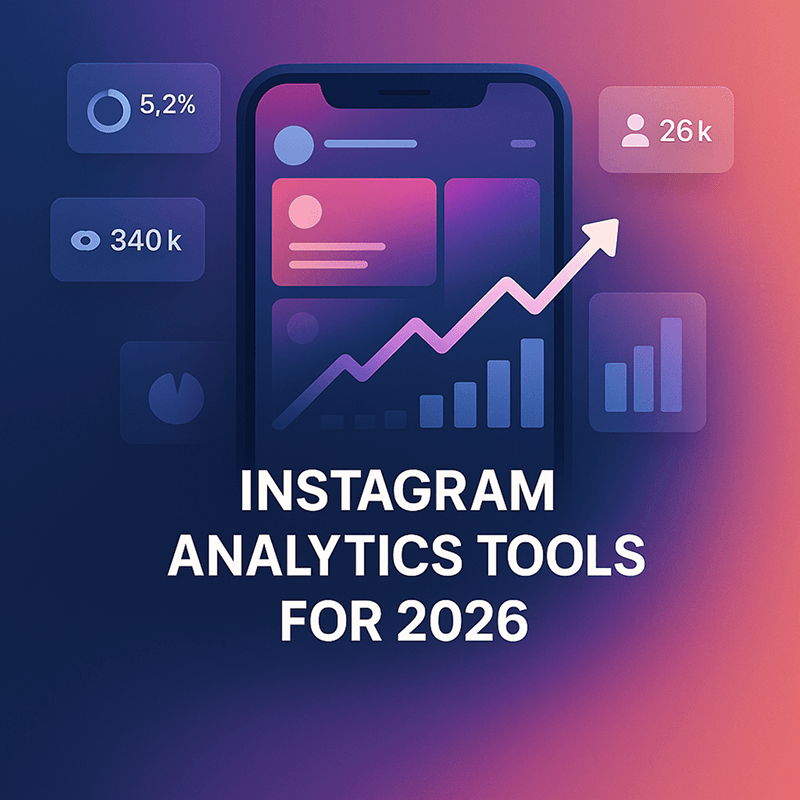Online Education with Tech & Video
The future of eLearning will be characterized by a combination of traditional and technology-driven approaches. Check out the trends.

Integrate your CRM with other tools
Lorem ipsum dolor sit amet, consectetur adipiscing elit lobortis arcu enim urna adipiscing praesent velit viverra sit semper lorem eu cursus vel hendrerit elementum morbi curabitur etiam nibh justo, lorem aliquet donec sed sit mi dignissim at ante massa mattis.
- Neque sodales ut etiam sit amet nisl purus non tellus orci ac auctor
- Adipiscing elit ut aliquam purus sit amet viverra suspendisse potenti
- Mauris commodo quis imperdiet massa tincidunt nunc pulvinar
- Adipiscing elit ut aliquam purus sit amet viverra suspendisse potenti
How to connect your integrations to your CRM platform?
Vitae congue eu consequat ac felis placerat vestibulum lectus mauris ultrices cursus sit amet dictum sit amet justo donec enim diam porttitor lacus luctus accumsan tortor posuere praesent tristique magna sit amet purus gravida quis blandit turpis.

Techbit is the next-gen CRM platform designed for modern sales teams
At risus viverra adipiscing at in tellus integer feugiat nisl pretium fusce id velit ut tortor sagittis orci a scelerisque purus semper eget at lectus urna duis convallis. porta nibh venenatis cras sed felis eget neque laoreet suspendisse interdum consectetur libero id faucibus nisl donec pretium vulputate sapien nec sagittis aliquam nunc lobortis mattis aliquam faucibus purus in.
- Neque sodales ut etiam sit amet nisl purus non tellus orci ac auctor
- Adipiscing elit ut aliquam purus sit amet viverra suspendisse potenti venenatis
- Mauris commodo quis imperdiet massa at in tincidunt nunc pulvinar
- Adipiscing elit ut aliquam purus sit amet viverra suspendisse potenti consectetur
Why using the right CRM can make your team close more sales?
Nisi quis eleifend quam adipiscing vitae aliquet bibendum enim facilisis gravida neque. Velit euismod in pellentesque massa placerat volutpat lacus laoreet non curabitur gravida odio aenean sed adipiscing diam donec adipiscing tristique risus. amet est placerat.
“Nisi quis eleifend quam adipiscing vitae aliquet bibendum enim facilisis gravida neque velit euismod in pellentesque massa placerat.”
What other features would you like to see in our product?
Eget lorem dolor sed viverra ipsum nunc aliquet bibendum felis donec et odio pellentesque diam volutpat commodo sed egestas aliquam sem fringilla ut morbi tincidunt augue interdum velit euismod eu tincidunt tortor aliquam nulla facilisi aenean sed adipiscing diam donec adipiscing ut lectus arcu bibendum at varius vel pharetra nibh venenatis cras sed felis eget.
Online Education: The Role of Technology and Interactive Video
The integration of interactive video and online learning has seen a meteoric rise, reshaping the landscape of digital learning environments. This phenomenon represents a significant shift from traditional e-learning approaches.
This is no accident.
Interactive videos have enriched the user experience by offering engagement and personalization that static content lacks. This evolution has set the stage for the future of online education.
Rise of Interactive Video in Education
Edtech through interactive video is revolutionizing education, creating a dynamic intersection of technology and pedagogy unparalleled in its capacity for engagement. This innovative medium transcends passive viewing, allowing students to actively participate, thus fostering deeper learning.
By embedding quizzes and branching scenarios within learning management systems, educators can adapt content to individual learning pathways. Not only does this cater to diverse learner needs, but it also provides real-time feedback, enhancing knowledge retention. Consequently, interactive video stands as a cornerstone in the evolution of personalized education.
Benefits Over Traditional Methods
Interactive videos offer unparalleled engagement—incorporating multimedia elements that appeal to various learning styles enhances retention and personalizes the educational experience.
Studies have shown interactive videos can increase student engagement by up to 300%.
Unlike traditional methods, interactive videos enable real-time feedback, allowing students to assess their understanding immediately. This immediacy fosters an adaptive learning process, tailored to individual needs and pacing.
Additionally, the data generated from these interactions provides educators with valuable insights into student performance, informing instructional strategies. This creates a more effective and responsive educational environment.
Student Engagement Metrics
Student engagement is crucial for effective learning.
Interactive video platforms offer a multitude of metrics. These metrics include click-through rates, quiz completion, and engagement timelines, which are crucial for understanding learner behaviors. Educators can analyze how students interact with content, pinpointing moments of high and low engagement. Consequently, this data informs targeted interventions to bolster learning outcomes.
Metrics drive strategic decisions.
Understanding these engagement metrics allows for minute adjustments. For instance, educators can refine their content to improve engagement at specific junctures. Enhanced interactivity, tailored around data-driven insights, ensures that pedagogical methods remain dynamic and responsive.
Properly leveraging these data points can significantly enhance educational outcomes, making the learning process more efficient and personalized. Through real-time analytics, educators can pivot strategies swiftly, fostering an enriching and immersive learning environment.
Emerging Technologies in Video Learning
Emerging edtech technologies in video learning are transforming traditional e-learning paradigms, enhancing user engagement with interactive elements.
Notably, artificial intelligence (AI) and augmented reality (AR) are at the forefront of revolutionizing video learning, facilitating more immersive and personalized experiences that adapt in real time. These technologies allow for a more dynamic educational approach, bridging the gap between theoretical knowledge and practical application.
AI-driven “smart videos” and AR-infused lessons are becoming mainstays in today’s educational landscape.
Virtual Reality Integration
Virtual reality (VR) is reshaping online education, offering immersive experiential learning across various disciplines.
Through immersive simulations, VR enables students to explore complex concepts in a more engaging and hands-on manner, fostering deeper understanding. Incorporating VR into online education platforms allows for the creation of interactive scenarios that replicate real-world environments, thus enhancing practical skills and critical thinking.
Additionally, VR can democratize education by providing access to inaccessible locations. For instance, virtual field trips can transport learners to historically significant sites or ecosystems, enriching their learning experience without geographic limitations.
Moreover, VR fosters collaborative learning experiences by enabling virtual classrooms where students and instructors can interact in real-time, as if they were physically present. This innovation transcends traditional education boundaries, creating opportunities for authentic, interactive learning that aligns with 21st-century educational needs.
AI-Powered Personalization
Artificial Intelligence (AI) has revolutionized online education by tailoring learning experiences to individual needs.
AI algorithms, by leveraging extensive datasets, can analyze student behaviors, preferences, and performance metrics, dynamically adjusting the curriculum to optimize learning outcomes. Personalized learning pathways are created, ensuring that students receive content and assessments designed to address their unique strengths and weaknesses.
Consequently, this level of customization fosters higher engagement and retention rates. For example, students struggling with specific concepts can receive targeted support, while advanced learners can be challenged with more complex materials, thereby maximizing the potential for each learner.
The integration of AI-powered personalization helps educators manage diverse classrooms more effectively, providing real-time insights into student progress. These innovations make learning more adaptive and student-centered, paving the way for a more responsive and efficient educational paradigm.
Case Studies of Successful Implementation
Coursera's extensive mentoring program, a staple of online educational excellence, showcases this trend. Structured around interactive video modules, Coursera's courses exhibit significant success by incorporating real-time feedback mechanisms, enabling learners to engage deeply with content. This strategy not only elevates engagement but also enhances knowledge retention through immediate application and instructor interaction.
University Programs
Increasingly, universities are adopting interactive video to enrich online degree offerings, enhancing student engagement and learning outcomes dramatically.
- Harvard University: Implemented immersive video lectures in their business school, boosting student participation by 40%.
- Stanford University: Deployed interactive video case studies in engineering programs, leading to a 30% increase in student comprehension.
- MIT: Integrated real-time video assessments in science courses, which improved retention rates by 25%.
- University of Michigan: Used video-based peer reviews in their literature courses, significantly enhancing critical thinking skills.
These universities have set the benchmark for incorporating interactive video into higher education.
The positive outcomes underscore the potential of interactive video as a transformative tool in academia.
Corporate Training Examples
Innovative corporations are capitalizing on interactive video to revolutionize employee training programs, yielding higher engagement and knowledge retention.
- Deloitte: Leveraged interactive videos for compliance training, reducing completion times by 50%.
- Microsoft: Utilized scenario-based video training for customer service roles, leading to a 35% increase in problem-solving abilities.
- Google: Employed gamified video modules for software engineering training, resulting in a 40% improvement in coding proficiency.
- Amazon: Integrated real-time feedback mechanisms within video tutorials for logistics training, enhancing operational efficiency by 30%.
- IBM: Adopted interactive video for leadership development programs, which improved managerial effectiveness by 20%.
These examples demonstrate the transformative potential of interactive video in corporate training landscapes.
Through tailored and engaging video content, employees not only learn faster but also retain information more effectively.
The strategic implementation of interactive video paves the way for continuous innovation in employee development.
Future Prospects and Innovations
The future of online education, particularly with the integration of interactive video, looks promising. Emerging technologies like artificial intelligence, augmented reality, and machine learning are expected to further enhance user engagement and personalized learning experiences.
Moreover, the scalability and accessibility of interactive video mean education can reach a global audience seamlessly. As these technologies evolve, they will likely provide more intuitive interfaces, real-time feedback, and adaptive learning paths tailored to each individual, thereby revolutionizing the educational landscape.
Trends in Interactive Content
Interactive content is revolutionizing the educational technology landscape, providing dynamic and engaging learning experiences for users.
- Gamification: Incorporating game elements to enhance motivation and engagement.
- Branching Scenarios: Offering learners choices that lead to different outcomes, fostering critical thinking.
- Interactive Quiz Videos: Engaging learners with real-time questions and feedback during video playback.
- Augmented Reality (AR): Blending digital content with the physical world to create immersive learning experiences.
- 360-Degree Videos: Allowing users to explore virtual environments, providing a more comprehensive learning experience.
These trends facilitate higher engagement, better information retention, and personalized learning experiences.
Future developments in educational technology will likely integrate these interactive elements even more seamlessly.
Exploring these trends can provide valuable insights into the next wave of educational innovation.
Long-term Educational Outcomes
When evaluating the influence of interactive video in online education, it is crucial to consider long-term educational outcomes.
Interactive video can enhance cognitive retention over extended periods.
By engaging learners through active participation, this medium fosters a deeper understanding of core concepts, leading to sustained knowledge retention.
Furthermore, the application of interactive video in a curriculum can equip learners with critical skills in problem-solving and adaptive thinking, preparing them for an evolving job market. As these technologies advance, their impact on long-term educational outcomes will likely become increasingly significant, underscoring their pivotal role in shaping future educational paradigms.
Conclusion
In conclusion, the evolution and future of online education using technology and interactive video are poised to redefine how we learn and teach. As educational technology continues to advance, the integration of interactive video will play a crucial role in creating more engaging, personalized, and effective learning experiences. By embracing these innovations, educators and institutions can stay ahead of the curve and provide students with the tools they need to succeed in a rapidly changing world.
Are you ready to revolutionize your educational process? Start leveraging interactive video today and transform how you welcome new employees to your team. Share your experiences or ask questions by reaching out to us today. Let us help you create a plan that not only meets but exceeds your engagement goals.


.png)





